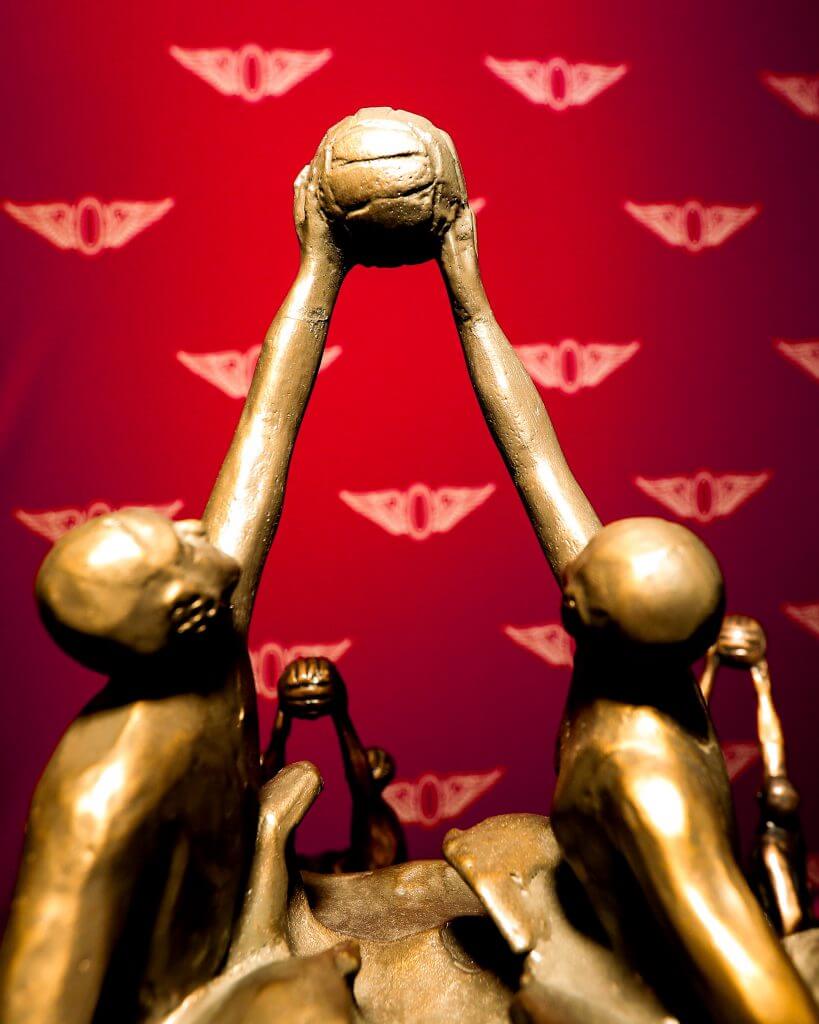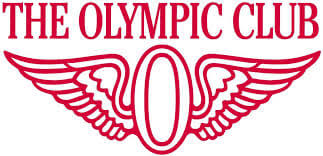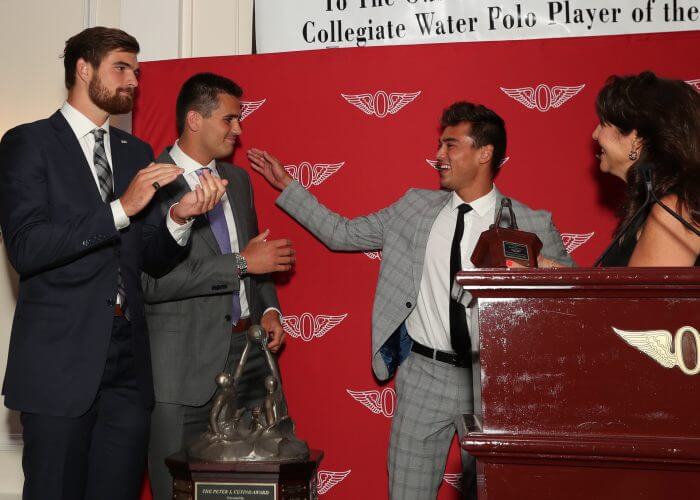Yes, There WILL Be a Cutino Award In 2020; Men Are Nominated; Waiting for Women Selections

Earlier this week the Olympic Club affirmed that the Cutino Awards ceremony honoring the top male and female intercollegiate water polo athletes is still scheduled to take place on the first weekend in June. But, like everything in these challenging times, the status of the most prestigious individual award in collegiate water polo is imperiled by the COVID-19 health crisis, which has San Francisco, the Club’s home, gripped in lockdown.
 As noted Tuesday on Twitter by Greg Mescall of USA Water Polo, the club has selected three nominees for this year’s men’s award: Stanford’s Ben Hallock—the 2019 Cutino winner—Pacific’s Luke Pavillard, a nominee the past three years, and Bucknell’s Rade Joksimovic, one of the most dynamic players in Eastern polo history.
As noted Tuesday on Twitter by Greg Mescall of USA Water Polo, the club has selected three nominees for this year’s men’s award: Stanford’s Ben Hallock—the 2019 Cutino winner—Pacific’s Luke Pavillard, a nominee the past three years, and Bucknell’s Rade Joksimovic, one of the most dynamic players in Eastern polo history.
What has yet to be confirmed is who the women’s nominees will be after a season terminated early due to a nation-wide cancellation of collegiate and professional sporting events.
Gary Crooks, The Olympic Club’s athletic director who has overseen the Cutino Awards nomination process since its inception in 1999—which saw the selection of UCLA’s Sean Kern and Bernice Orweg of USC—responded to Swimming World regarding the status of one of the best evenings for the sport in America. Crooks confirmed via email that even though the club is closed until April 30th—and perhaps longer, pending the lifting of a “Shelter In” order imposed on San Francisco by Mayor London Breed—the awards dinner is planned for Saturday, June 6.

The Olympic Club—one of the nation’s grandest athletics venues—is locked down until the end of April. Photo Courtesy: Catharyn Hayne
As occurred last year for the first time ever, the ceremony will be live-streamed by USA Water Polo, with Mescall and select guests providing color commentary as well as the announcement of the male and female winners.
[Stanford Sweep! Fischer, Hallock Win Cutinos as America’s Best Polo Players]
Assuming the Cutino Award ceremony does take place, it will provide an uplifting moment for a sport that has been hit as hard as any by a spate of professional and NCAA athletics cancellations—including the postponement of pro polo in Italy, which has been devastated by COVID-19. Almost 35,000 Italians have been infected, and the country’s death toll is approaching 3,300—more than all who have died in China.
[Coronavirus in Italy; A Perspective from Francesco Grillone of Water Polo Italy]
Nominees for this season’s best female polo athlete have been disrupted by the coronavirus crisis. With only half a season of play, and no national championship for the first time since the NCAA launched a women’s tournament in 2001, the selection process for the 2020 female player of the year is entirely different from years past.
Crooks alluded to as much, saying that uncertainty is a factor in what comes next for an award created to honor Pete Cutino, the Cal-Berkeley and national team men’s coach who was one of the most formidable figures in American polo history.
If there were no women’s nominees, Crooks speculated that one option might be to host a scaled-down event that celebrates only the men’s winner—with the caveat being that individual may not be in attendance because of national team training demands prior to the 2020 Olympics, currently scheduled to begin in Tokyo on July 24th.
Crooks said he would convene the Cutino Award trustees, including the late coach’s daughter Anna, next week about what steps to take next.

It looks like Cal’s Johnny Hooper is the winner—but the 2019 award belongs to Ben Hallock of Stanford. Photo Courtesy: Catharyn Hayne
But, a course of action that does not include a full celebration—assuming the coronavirus crisis has receded sufficiently to permit a gathering of 200 or more—would be a missed opportunity. Certainly for talented female athltes given a chance to shine due to the absence of top women training with their national teams—players such as Tara Prentice of UC Irvine, who finished her Anteater career with 164 goals in three seasons after transferring from UCLA.
The Cutino Awards emphasize bonds fostered by a highly-specialized sport which inspires tremendous loyalty from those who have played it—the majority of whom would likely look to a gathering in early June as an opportunity not only to celebrate the sport they love, but to make a decisive statement in the face of one of the most trying times for athletics in American history.



